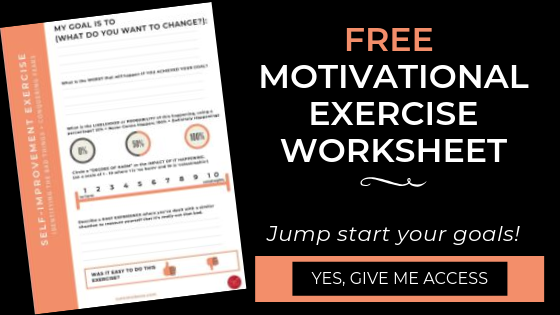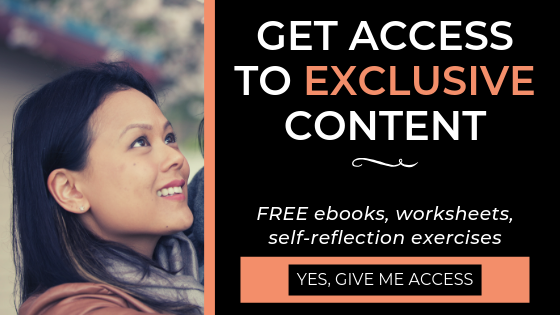Being good at something doesn't mean you enjoy it and should be doing it.
When parents, teachers, supervisors, managers and bosses tell you you’re good at doing this, does that mean you’re also passionate about it?
What do you want to do with your life?
What’s your life’s mission?
What do you want to leave behind when you die?
Aren’t those loaded questions?
If you’re like a lot of other people, these are things we don’t want to think about but haunt us every day, especially in times of crisis or when shit hits the fan.
I mean just look at all the books, blogs and articles you can read about to find your life purpose. Passion, purpose, mission, direction, life, happiness, fulfillment…etc
People want to know why they exist on earth.
What are they supposed to be doing? What’s their calling? What they’re meant to do with the time they have? Why are they breathing? Why should they continue to breathe?
I’m not one of those self-proclaimed life gurus or spiritual leaders, although I don’t judge if their voice resonates with you. I’m a practical, how-to, get to the point, #realtalk type of person.
So here’s the bottom line: what you’re good at doing doesn’t mean you love doing it.
You may already know this but for me, it took decades to figure out and actually implement in my life.
I did fucking well in school but I fucking hated it.
From grade school to high school to University, straight A’s on report cards were like a dime a dozen. 10/10 on quizzes, 95% or more on exams, perfect scores on assignments. When it came down to picking a University, I chose the one that gave me the bigger scholarship.
Just check out my yearbook where my graduating class voted that I would “Most Likely get a Ph.D.”***
***Side note: OK screwed the pooch on that one….although an honorary doctorate for getting Asian Canadians to talk about their damn feelings would be pretty nice.
School came easy to me. Not a lot of kids can say that. It’s not an easy system to oblige by.
I realized early in life that school was an institution built with very simple rules. And if you just followed the rules, you will get praised, recognized, rewarded and treated like royalty by that institution or system. (maybe not necessarily your peers/those who are also playing in the system… I was called a geek/nerd too many times to count).
It didn’t matter what the subject was: Math, English, Social Studies, Chemistry, French, Home Economics, Biology, Physics, Calculus…it’s the same formula to do well.
Here’s a little secret about school:
Be quiet, be still, be obedient, be diligent, be detail-oriented, work hard, execute, execute, execute.
You practice how to do something, rinse and repeat. You memorize the steps or the facts, regurgitate, meet deadlines, suck it up during group projects, complete the tasks, check the boxes, filter the noise and focus on what matters: getting the grade, the marks, the perfect score.
For most of my academic life, I focused everything on the grade. I valued the numbers, not the learning.
Optional assignment? Will this give me extra credit?
If not, fuck it. Don’t waste time.
When I got delusional about what I’m passionate about
When I was a child, there was a fine line between what I was good at and what I enjoyed doing. When someone would ask me what my favourite subject was, it would depend on which course I was getting the best mark in. It was a fickle choice for me, like the news or flavour of the month.
When you are conditioned this way, praised for your ability to follow instructions, what you like doing gets blurred with what you’re good at. And when you’re an overachiever like myself, you do everything well.
So when the time comes to pick a path after high school, the burden of choice happens because there are too many options. I went with what I thought I would do the best at, not what I would like learning. I chose to study Kinesiology and Biomedical Physiology because I was interested in the human body. I did well and went onto do my Graduate studies in Health Sciences.
Then I started working in the healthcare system, leading patient safety incident investigations, quality and systems improvement projects, and change management initiatives within mental health, emergency health and women’s health services.
Re-discovering my passion and purpose
I’ve been a writer since I was 6 years old, from numerous diary entries of all my most vulnerable thoughts, poems about emotional struggles, an entire book series titled “Leona” about a girl who dared to break the rules to an unfinished script about a man who was working as a teacher during the Columbine shooting. Then, the writing stopped because writing became a skill used for essays, assignments, group projects….then it was used for work emails, reports, project charters, presentations, progress updates, memos…etc.
Why keep writing when you already write all day?
When I become mom, I went through a transformation, not just physically but emotionally, mentally and spiritually. It was such a change that I needed to make sense of all the chaos. So I started writing; it became a means of therapy, making the abstract become concrete; the irrational becomes rational.
Why did I start blogging?
Then the writing became a blog because I needed a sense of community, to connect with those who felt the same way as me.
Selfish reason: To keep a record for all the life lessons and ramblings inside my head.
Selfless reason: To help the world with all my life lessons and entertain them with ramblings inside my head.
How can you re-discover your passion and find your purpose?
First, you need to figure out what you’re actually good at doing.
What are you damn good at?
What’s your talent?
What’s a skill that you have that you always get praised for?
What’s something you do that others admire about you?
It’s not about what you do, but how you do something.
For instance, you are amazing at creating things from scratch. You are a fantastic speaker. You’re great at asking questions. You are great with your hands. You are wonderful at making things beautiful and aesthetically pleasing.
Next, you need to figure out what you want to apply those coveted skills toward.
I call this re-discovering your passion because passion has existed in us ever since we figured out our likes and dislikes. I mean just look at babies and how some like to play with the shiny toys whereas others like to play with the noise-making toys.
As a parent, I know what my kids like to do. It’s obvious and they’re brutally honest about it. They’ll say it to your face what they want and don’t want.
But kids grow up and become adults; responsibilities, social expectations, obligations, the facts of life and other priorities get in the way and that passion gets buried deep inside us. We forget what having fun means.
So how can you re-ignite what you used to love?
As a kid, what’s something you loved doing?
Whenever your parents were trying to get you to come downstairs for dinner, what were you actually doing? What hobbies did you have growing up? What did you get lost in? How did you escape the realities (horrors) of teenage angst? What allowed you to survive?
As an adult, what do you love talking about?
If you could play God and control a social situation so that people talk about a certain topic, what topic would that be? Sports? Gardening? Food? Their love lives? Sock puppets?
What do you Google, read, listen, view and consume content on? Late into the night, what are you staying up watching? Which blogs do you follow? Which influencer do you admire? Which niche are they in? What shows do you have on repeat?
When’s the last time you lost track of time? What topic did you immerse yourself in?
Then, combine your skill with your passion to create your purpose.
Find your space in the Venn where those two things eclipse. That’s your sweet spot.
What you’ve been told you’re good at does not necessarily mean it’s your passion. It becomes a delusional passion. Transform what you’re good at into a service for others. Then target the service within what you’re passionate about.
I’m passionate about getting individuals to talk about their feelings, improving relationships, family dynamics, finding love and dating, culture, self-love, self-growth.
My purpose is to use my writing, speaking, storytelling and creative skills to provide value to others in these areas.





